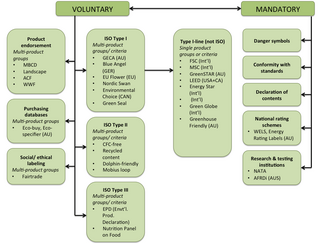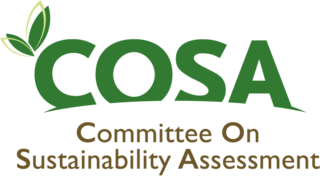
Tourism is travel for pleasure, and the commercial activity of providing and supporting such travel. UN Tourism defines tourism more generally, in terms which go "beyond the common perception of tourism as being limited to holiday activity only", as people "travelling to and staying in places outside their usual environment for not more than one consecutive year for leisure and not less than 24 hours, business and other purposes". Tourism can be domestic or international, and international tourism has both incoming and outgoing implications on a country's balance of payments.

Ecotourism is a form of tourism marketed as "responsible" travel to natural areas, conserving the environment, and improving the well-being of the local people. The stated purpose may be to educate the traveler, to provide funds for ecological conservation, to directly benefit the economic development and political empowerment of local communities, or to foster respect for different cultures and human rights.

The Forest Stewardship Council GmbH (FSC) is an international non-profit, multistakeholder organization established in 1993 that promotes responsible management of the world's forests via timber certification. This organization uses a market-based approach to transnational environmental policy.

The Marine Stewardship Council (MSC) is a non-profit organisation which aims to set standards for sustainable fishing. Fisheries that wish to demonstrate they are well-managed and sustainable compared to the MSC's standards are assessed by a team of Conformity Assessment Bodies (CABs).

Ecolabels and Green Stickers are labeling systems for food and consumer products. The use of ecolabels is voluntary, whereas green stickers are mandated by law; for example, in North America major appliances and automobiles use Energy Star. They are a form of sustainability measurement directed at consumers, intended to make it easy to take environmental concerns into account when shopping. Some labels quantify pollution or energy consumption by way of index scores or units of measurement, while others assert compliance with a set of practices or minimum requirements for sustainability or reduction of harm to the environment. Many ecolabels are focused on minimising the negative ecological impacts of primary production or resource extraction in a given sector or commodity through a set of good practices that are captured in a sustainability standard. Through a verification process, usually referred to as "certification", a farm, forest, fishery, or mine can show that it complies with a standard and earn the right to sell its products as certified through the supply chain, often resulting in a consumer-facing ecolabel.

The Programme for the Endorsement of Forest Certification (PEFC) is an international, non-profit, non-governmental organization which promotes sustainable forest management through independent third-party certification. As of 2006, it was considered the certification system of choice for small forest owners in Europe.

The Rainforest Alliance is an international non-governmental organization (NGO) with staff in more than 20 countries and operations in more than 70 countries. It was founded in 1987 by Daniel Katz, an American environmental activist, who serves as the chair of the board of directors. The NGO states that its mission is "to create a more sustainable world by using social and market forces to protect nature and improve the lives of farmers and forest communities." Its work includes the provision of an environmental certification for sustainability in agriculture. In parallel to its certification program, the Rainforest Alliance develops and implements long-term conservation and community development programs in a number of critically important tropical landscapes where commodity production threatens ecosystem health and the well-being of rural communities.

Sustainable tourism is a concept that covers the complete tourism experience, including concern for economic, social, and environmental issues as well as attention to improving tourists' experiences and addressing the needs of host communities. Sustainable tourism should embrace concerns for environmental protection, social equity, and the quality of life, cultural diversity, and a dynamic, viable economy delivering jobs and prosperity for all. It has its roots in sustainable development and there can be some confusion as to what "sustainable tourism" means. There is now broad consensus that tourism should be sustainable. In fact, all forms of tourism have the potential to be sustainable if planned, developed and managed properly. Tourist development organizations are promoting sustainable tourism practices in order to mitigate negative effects caused by the growing impact of tourism, for example its environmental impacts.
Sustainable procurement or green procurement is a process whereby organizations meet their needs for goods, services, works and utilities in a way that achieves value for money on a life-cycle basis while addressing equity principles for sustainable development, therefore benefiting societies and the environment across time and geographies. Procurement is often conducted via a tendering or competitive bidding process. The process is used to ensure the buyer receives goods, services or works for the best possible price, when aspects such as quality, quantity, time, and location are compared. Procurement is considered sustainable when organizations broadens this framework by meeting their needs for goods, services, works, and utilities in a way that achieves value for money and promotes positive outcomes not only for the organization itself but for the economy, environment, and society. This framework is also known as the triple bottom line, which is a business accounting framework. The concept of TBL is narrowly prescribed, and even John Elkington, who coined the term in the 1990s, now advocates its recall. Indeed, procurement practitioners have drawn attention to the fact that buying from smaller firms, locally, is an important aspect of sustainable procurement in the public sector. Ethics, culture, safety, diversity, inclusion, justice, human rights and the environment are additionally listed as important aspects of SPP.
Rural tourism is a tourism that focuses on actively participating in a rural lifestyle. It can be a variant of ecotourism. Many villages can facilitate tourism because many villagers are hospitable and eager to welcome or host visitors. Agriculture has become more mechanized and requires less manual labor. This trend is causing economic pressure on some villages, which in turn causes young people to move to urban areas. There is however, a segment of the urban population that is interested in visiting the rural areas and understanding the lifestyle.

Tourism carrying capacity (TCC) is an imperfect but useful approach to managing visitors in vulnerable areas. The TCC concept evolved out of the fields of range, habitat and wildlife management. In these fields, managers attempted to determine the largest population of a particular species that could be supported by a habitat over a long period of time.

EarthCheck, previously operating under the name EC3 Global, is a globally recognized group specializing in benchmarking, certification, and advisory services. Its primary focus lies in the environmental and scientific dimensions of the travel and tourism sector. Established over 30 years ago, EarthCheck collaborates with prominent research institutions and universities globally to address sustainability and climate change challenges in tourism destinations and businesses.
An eco hotel, or a green hotel, is an environmentally sustainable hotel or accommodation that has made important environmental improvements to its structure in order to minimize its impact on the natural environment. The basic definition of an eco-friendly hotel is an environmentally responsible lodging that follows the practices of green living. These hotels have to be certified green by an independent third-party or by the state they are located in. Traditionally, these hotels were mostly presented as ecolodges because of their location, often in jungles, and their design inspired by the use of traditional building methods applied by skilled local craftsmen in areas, such as Costa Rica and Indonesia.
High conservation value forest (HCVF) is a Forest Stewardship Council (FSC) forest management designation used to describe those forests who meet criteria defined by the FSC Principles and Criteria of Forest Stewardship.
Responsible tourism is a relatively modern concept in the Kingdom of Thailand that took root in the late-1990s. It is underpinned by the belief that tourism should develop in a manner that minimizes negative impacts on local communities, and wherever possible ensure that a positive symbiosis exists between hosts and visitors. Responsible travel promotes a respect for indigenous culture, the minimization of the negative environmental impacts of tourism, active participation in volunteering to assist local communities, and the structuring of businesses to benefit the final service provider rather than an international agent.

The Committee on Sustainability Assessment (COSA) is a global consortium of development institutions that work collaboratively to advance sustainability learning with systematic and science-based measurement. COSA applies a pragmatic and collective approach for using scientific methods to develop indicators, tools, and technologies to measure the distinct social, environmental, and economic impacts and are applied in performance monitoring, evaluation, return on investment (ROI) calculation, and impact assessment. COSA has a public mission to open its scientific methods and metrics up to widespread use.
Sustainable products are products who are either sustainability sourced, manufactured or processed that provide environmental, social and economic benefits while protecting public health and environment over their whole life cycle, from the extraction of raw materials until the final disposal.

Ecotourism is a key component of the tourism industry in Costa Rica. By the early 1990s, Costa Rica became known as the poster child of ecotourism. The country is among many developing nations that look to ecotourism as a way of cashing in on the growing demand for this popular trend of travel.

Ecotourism in Mexico is tourism that sustainably experiences fragile, pristine and relatively undisturbed natural areas. Tourism is a large sources of revenue for Mexico Ecotourism has received mixed responses, but organizations such as the Organization for Economic Co-Operation and Development (OECD) stressed its importance in the long-term economic health of Mexico.
Globalization of supply chains and pressure to lower production costs have negatively impacted environments and communities around the world, especially in developing nations where production of high demand goods is increasingly taking place. Since the 1990s, awareness of these negative impacts has grown, leading stakeholders to push companies to take responsibility and actively work to improve the sustainability of their supply chains. It has come to be understood that a company is only as sustainable as the start of its supply chain, bringing about the need for sustainable sourcing. Sustainable sourcing refers to the inclusion of social, environmental, and economic criteria in the sourcing process.